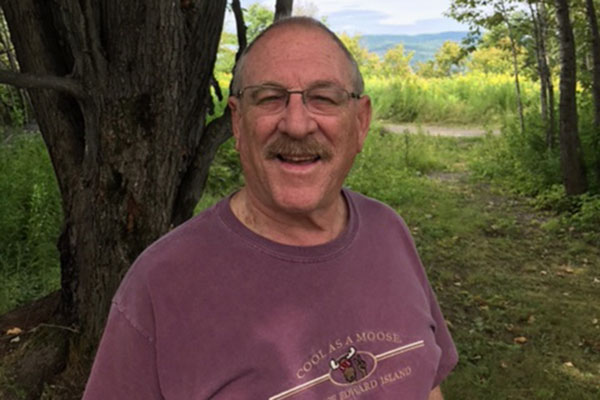Michaelsen recalls ’60s protests

He arrived on campus in 1965, a 21-year-old conscientious objector with a passion for justice and a firm belief that America was headed down a dark path in Southeast Asia.
So in a sense, Don Michaelsen ’67 and Manchester were of one mind long before he ever stepped foot in the place.
“The theme of the college as I approached it was faith, learning and service,” Michaelsen says today, looking back on his days as a Manchester student and fervent opponent of the Vietnam War. “I firmly believed in those core values, and I still do today.”
Which is why Michaelsen sat down this summer with PBS 39 in Fort Wayne to talk about Vietnam. The interview took about 30 minutes, and will be aired during the Ken Burns documentary on Vietnam this month.
In it, Michaelsen recalled in particular a convocation at Manchester featuring a political activist from Chicago. The activist, Michaelsen says, told the assembled students to “let your feet do the talking.”
“That crystallized my commitment to protesting the war,” he says. “There were all kinds of reasons to oppose the war, and I agreed with all of them.”
He came by that opposition honestly. And he covered a lot of ground doing it.
His life’s path took him from New Hampshire to South Dakota as the son of a United Church of Christ pastor, and then to African-American neighborhoods in Washington, D.C., and the Council of Churches in Indianapolis as a CO doing alternative service with the Brethren Volunteer Service. It took him to New York City, where, with some 400,000 others, he marched 20 abreast down Broadway to protest the Vietnam War. It took him to North Manchester, where, as a student at the University, he sat on a panel discussing the war, wrote a political column (“Poly-Ticks”) for the Oak Leaves and became the go-to person for anyone who wanted to talk about Vietnam.
“Everybody on the campus knew that I was the person quite willing and open to talk about any aspect of the Vietnam War, the protest movement, U.S. foreign policy, whatever,” Michaelsen says. “Students came up to me and asked me, ‘I want to do a term paper on some aspect of this thing.’ And so I would give them suggestions.”
By that time, Michaelsen was a seasoned protestor and organizer. Two years before arriving at Manchester, while waiting for his second alternative service assignment, he’d helped organize a bus trip from the Brethren Service Center in New Windsor, Md., to the March on Washington for Jobs and Freedom, where Martin Luther King Jr. gave his iconic “I Have Dream” speech on the steps of the Lincoln Memorial. He’d participated in some protests in Indianapolis. And as soon as he arrived on campus, he’d helped organize a group for the first national protest of the war in Washington in the spring of ’65.
Later, accompanied by his then-fiancée and now wife, Phyllis, he attended yet another protest in Indianapolis. Later yet came New York, where Michaelsen and a carload of students from Manchester marched with all those thousands.
By that time, Michaelsen, who initially had to look up the Church of the Brethren in the encyclopedia, was well on his way to a life of service to the church that continues to this day.
“I came to Manchester, and that sort of cemented my relationship with the denomination,” Michaelsen says.
And the core values that form the bedrock of both it and Manchester?
“That involvement on the campus for me is what propelled my life to this day in terms of my religious faith, deepening that,” Michaelsen says. “But also to continue to read alternative publications other than mass media, and to develop a critical mind thinking more about what the government tells us – and to turn that information around and apply it to the streets so to speak, and apply it in lobbying efforts to bring about social justice, environmental justice, civil liberties, civil rights kinds of things.”
-- Benjamin Smith